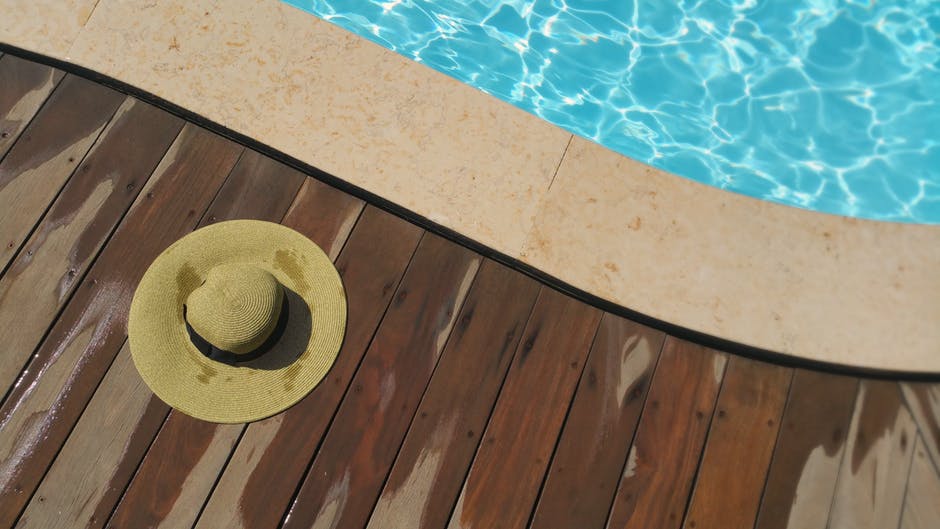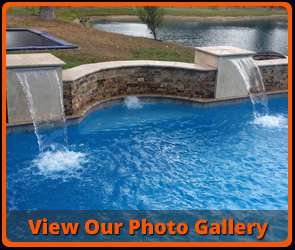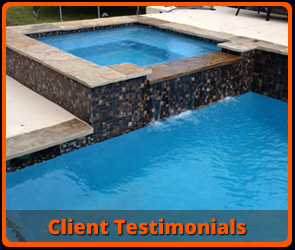Few things scream luxury real estate like an indoor home pool. But, believe it nor not, you don’t have to be a multi-millionaire to install one.
If you’re thinking about adding a pool to your home, it’s well worth it to stop and think about whether an indoor home pool or outdoor pool is the right choice for you. Luckily, we’ve got the inside scoop on both!
Here’s a peek into some of the most important factors that you need to consider when installing a pool, and where each option ranks. With this information, you’ll have everything you need to make an informed decision.
1. Cost
When it comes to initial installation cost, an outdoor pool is the clear winner. Although there are many variables that can impact the installation cost of a pool, you can expect a comparable indoor pool to cost about twice as much as one built outdoors.
Your energy costs will also be higher for an indoor pool. Not only do you have to heat and light the entire room, instead of just the pool itself, but you’ll also need to install a ventilation system to control the humidity indoors.
2. Design & Customization
When it comes to design and customization, you have plenty of flexibility regardless of whether you choose an indoor or outdoor pool. Before creating your own design, spend some time exploring some of the stunning indoor pool designs and beautiful outdoor swimming areas that other people have already installed.
Having some idea of the style you’re looking for before you get a pool installation estimate will speed up the process and help you get a more accurate quote.
3. Air Quality
Maintaining a pool requires the use of chemicals that can be irritating or even harmful when the fumes are inhaled. When it comes to air quality, outdoor pools win, simply due to them being out in the air where fumes can naturally waft away.
Inhaling high levels of chlorine can lead to many problems including difficulty breathing, asthma, chronic bronchitis, migraine headaches, and digestive issues. However, as long as you have an excellent ventilation system, this shouldn’t be a problem. If you’re concerned, you might want to include windows that you can open in the overall design of the space.
4. Maintenance
When it comes to maintenance, an indoor pool comes out ahead. This is mostly due to the fact that you don’t have to worry about leaves and other environmental debris blowing into the pool. You won’t have to spend time skimming the surface or scrubbing algae off the walls and you won’t have to worry about swimmers dragging sand and grass into the pool.
If you surround your outdoor pool with a screened-in cage then this will negate many of these issues. However, you’ll have to make sure to include the cost of the pool cage when planning your budget for the project.
It’s also worth noting that you’ll still need to keep up with adding the proper chemicals to the pool. However, this is true for both indoor and outdoor pool options.
5. Sun Exposure
If you enjoy being outdoors and working on your tan, then an outdoor pool is the best option for you. However, if you’re concerned about harmful UV rays, which can cause accelerated aging, eye problems, or even skin cancer, then you might prefer an indoor pool.
There are some compromises here as well. You could design your indoor pool with a retractable roof so the natural sun can come in when you want it, or you could put a pool cage with UV protection around your outdoor pool.
6. Swimming Season
Do you want to comfortably enjoy your pool all year round? If so, then an indoor pool is for you! You’ll be able to enjoy it on the hottest day of the summer without breaking a sweat and dive right in during the dead of winter.
There’s something to be said about being able to use your pool 12 months out of the year. For many homeowners, this is the biggest benefit of choosing an indoor pool over an outdoor one.
You also won’t have to worry about winterizing and covering your pool or finding indoor storage spots for your pool toys and furniture. This is one of the reasons that indoor pools are more popular in areas where the weather tends to be colder and more severe.
Indoor Home Pool vs. Outdoor Pool: Which Is Best?
Now that you know exactly where each type of pool shines, it’s time to decide which is right for you. The truth is, it’s really a matter of personal preference, whether you have the funds, and whether your current home has the space to accommodate an indoor pool.
If you’re still not sure, consider contacting a professional for advice. They’ll be able to discuss the pros and cons for your specific property and help you decide which is best for your needs.
Get Your Free Pool Quote Today!
Now that you know all the ups and downs that come with having an indoor home pool and an outdoor pool, you’re ready to move forward with your project. Your next step is to call in the pros and get a custom quote.
Contact us today to get started! We’ll help you decide on all of your design details, provide you with a fair and honest quote, and discuss exactly what you can expect once the project begins.




